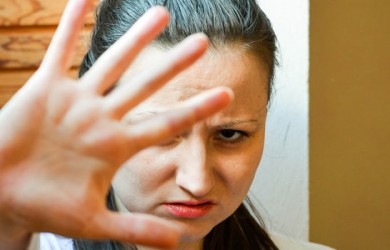The Physical & Physiological Effects of Physical Abuse & Healing

Unlock Daily 30-Sec Tips for a Happier Relationship
👉 Subscribe FREEKey Takeaways
Marriage.com AI Quick Summary
When two people decide to get married, it’s because they love each other, trust each other, and feel safe within their relationship. Sadly, though, people change, relationships change with it, and sometimes the safe and comfortable environment of a relationship can turn hostile.
Physical abuse and domestic violence are an unfortunate reality in today’s world, much of it happening behind closed doors. Men are the overwhelming predators, but there are cases of women playing that role too.
What is physical abuse?
Physical abuse is a type of violence that occurs when one person strikes, kicks, or otherwise abuses another. It can be physical punishment, or emotional and verbal abuse.
Physical abuse can cause physical injuries, but it can also lead to emotional and mental health problems.
5 physical effects of physical abuse
So, what are the long-term effects of abuse in a relationship? Physical abuse is any type of physical act that is done to another person with the intention of causing physical pain or injury.
Here are five physical effects of physical abuse:
1. Concussions
One of the physical abuse effects is when the victim sustains a head injury from a fall, hitting their head against an object, or being struck by something hard.
In this case, they may suffer a concussion. This is caused when the brain’s soft material has been injured and the movement of the brain inside the skull has been disrupted.
2. Broken bones
This can occur if a victim falls or is struck hard enough by an object to break one or more of their bones. Most broken bones require medical treatment in order to properly heal.
3. Burns
This may occur if the skin is come into contact with a hot object. It may result in deep tissue burns which require medical attention to prevent further damage.
4. Dental injuries
If a person is hit hard enough in the face their teeth may become damaged. They may require dental treatment to repair the damage caused and prevent any further issues from arising.
5. Wounds
This may occur if a person is stabbed or cut with a weapon. They are usually very painful and require immediate medical attention in order to treat the wound and prevent further damage from occurring.
Psychological effects of physical abuse
No matter who is the victim and who is the culprit, the effects of physical abuse either from excessive beating, bruising, or breaking can be lasting and damaging, both physically and emotionally.
There can be long-term effects of physical abuse:
-
Depression
Depression often stems from a sense that one has lost control of their lives. They are observers to the circumstances around them and there’s nothing that they can do about it.
Physical abuse creates an atmosphere that will consistently steal control from the victim, as they are left weak and powerless against their abusive spouse.
No matter how much they want to change their relationship and their current situation, they feel helpless in doing so. They feel that their partner has all the power and will put them in their place if they try to change that dynamic.
This feeling of hopelessness and helplessness can combine for a downward spiral of depression. In realizing the domestically violent conditions around them, they see that they are powerless.
When reflecting on how they can change that circumstance, they see that there is little hope in such a change due to their lack of power. This back and forth between helpless and hopeless can be as emotionally damaging as the effects of physical abuse was to their body.
Related Reading: 8 Signs for Recognizing Emotional Abuse
-
Anxiety
The definition of anxiety is,
“a feeling of worry, nervousness, or unease, typically about an imminent event or something with an uncertain outcome.”
An individual who has been physically abused by their spouse will no doubt experience anxiety at some point. They worry about what their partner might do next. This week they slapped them, what will happen next week?
They’re nervous about what to say or what to do so that they don’t trigger another attack. Their marriage and the current state of their relationship has no certainty and they don’t know what to expect.
Everything about their marriage is in flux and anxiety will be a near certain byproduct of that. Domestic violence leaves the victim in a constant state of fear; mainly fear of the unknown. They don’t know what will happen next.
They don’t know what to expect on a daily basis. Strong and stable marriages offer a safe haven of stability, but those that experience physical abuse feel anything but stable. And this is the sad effect of physical abuse.
Know the effects of abuse on the brain in this informative video:
-
Disassociation
Victims of physical abuse will often emotionally “check out”.
The life that they find themselves living is not one that they feel like they chose, so they remove themselves from that experience. They will still be there physically, maybe out of fear of trying to leave, but from an objective point of view, they are ghosts of themselves.
Friends and family will see the difference pretty clearly, but the person being abused is simply using it as a defense mechanism. If they don’t disassociate themselves from their circumstance, it would be that much harder to deal with.
Related Reading: How to Heal from Emotional Abuse
-
Denial
The bruises, gashes, and scars aren’t evidence enough for some. There are victims of physical abuse that will consciously deny their victimhood. This denial is a way for them to cope with the reality that surrounds them.
They may feel ashamed that they still are with their abuser, or embarrassed that their marriage has fallen apart, so they’ll deny the circumstances to save face.
They’ll say things like “Well I started it” or “She wasn’t trying to hurt me”. Their statements of dismissal in an effort to lessen their shame ironically give their violent spouse a free pass for their abuse.
This exacerbates the problem at hand and allows the abuse to continue. If the prey doesn’t make a big deal of the abuse, why would the predator stop?
Related Reading: Effective Ways to Deal With the After-effects of Physical Assault
-
Social isolation
One long-term abuse effects is that the victim of abuse will find it hard to be social with others who are not being abused within their marriages. They will have this burning secret that they are ashamed to talk about, so rather than trying to be around healthy people and relationships, they may choose to suffer alone.
What also may happen is that the abusive spouse will forbid the victim within the relationship to seek out friendships in fear of being found out.
They may use fear to keep their wife or husband at home so that they don’t run and tell someone about the domestic violence that is occurring at home.
This isolation will just pile on top of the emotional stressors of a physically abusive relationship, adding loneliness to depression, detachment, and anxiety.
-
The child’s interpretation
If there are children in the home of a physically abusive relationship, it’s only a matter of time before they either become a victim themselves or witness the abuse firsthand. In either case, the violence will have lasting effects on the child in question.
If they become victims of the abusive parent, there are obvious effects of physical abuse. The children are weaker, smaller, and unable to protect themselves from an adult that is abusive.
As the child grows up, the violence that they encountered from their parent−one of two people in the world that they innately trust with everything−will leave both physical and emotional scars that they carry for life.
If they are observers of the domestic violence, they may assume that it’s commonplace for such abuse to occur. Chances are they will encounter loving marriages through friends or acquaintances, but the relationship that they see the most of will carry more weight than anyone else.
The abusive relationship that they are used to seeing will become the norm, while the healthy marriages that they’ve come to know outside of their house will be seen as the exception.
This will make it difficult for the children to grow up and find meaningful, loving relationships because of the tragedies they experienced when they were young.
Living with the effects of physical abuse
Physical abuse is a form of violence that can leave lasting physical and emotional scars on those who experience it. It is often a hidden form of abuse that goes untreated, and can lead to long-term effects of abuse and health problems.
Living with the effects of physical abuse can be a difficult process.
Here are some ways that survivors of physical abuse and neglect can deal with the effects that linger even after their abusers have left them.
- Set boundaries and make sure to protect yourself.
- Talk to a trusted adult about what you are going through. Consider getting counseling.
- Take care of yourself physically and mentally by eating healthy and getting enough sleep and exercise.
- Develop healthy coping mechanisms to deal with the stress, anxiety, and depression that are common to survivors of abuse.
- Seek out other people who have experienced similar traumas and learn from them.
Takeaway
No cause can justify the tragic effects of physical abuse and domestic violence. If you or someone you know is in a domestically violent relationship, seek help from a therapist or the police immediately.
Related Reading: Child Custody And Leaving An Abusive Relationship
 Tips
Tips
Write your tip or submit a video tip
All tips are reviewed before the publishing.
Share this article on
Want to have a happier, healthier marriage?
If you feel disconnected or frustrated about the state of your marriage but want to avoid separation and/or divorce, the marriage.com course meant for married couples is an excellent resource to help you overcome the most challenging aspects of being married.
Related Quizzes
Unlock Daily 30-Sec Tips for a Happier, Healthier Relationship
👉 Subscribe FREE on YouTube We'd love your feedback!
We'd love your feedback!
 Expert Q&A
Expert Q&A
Ask your question related to this topic & get the support you deserve from experts.


















 Thanks for your feedback!
Thanks for your feedback!